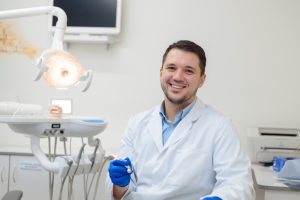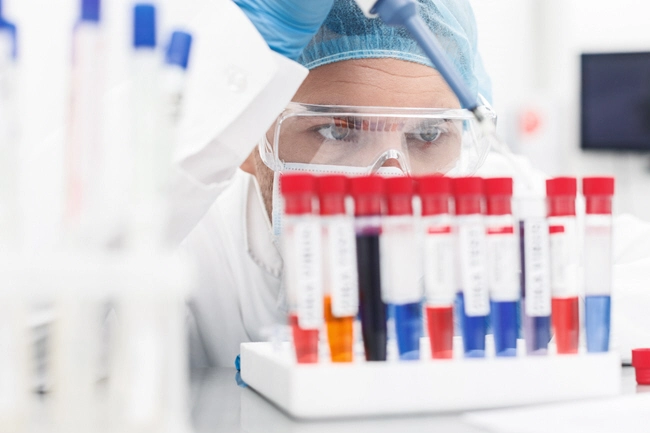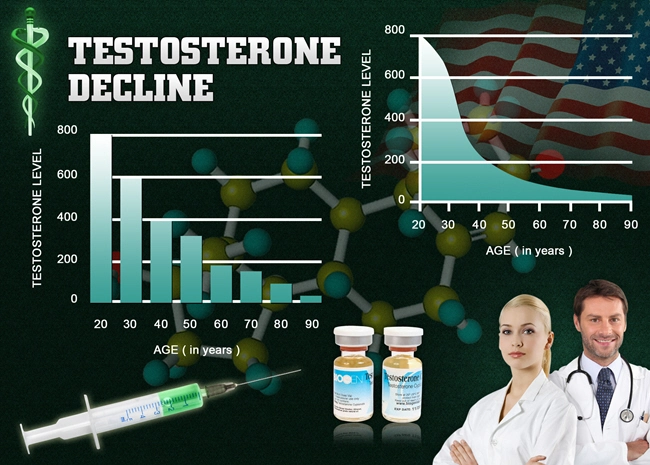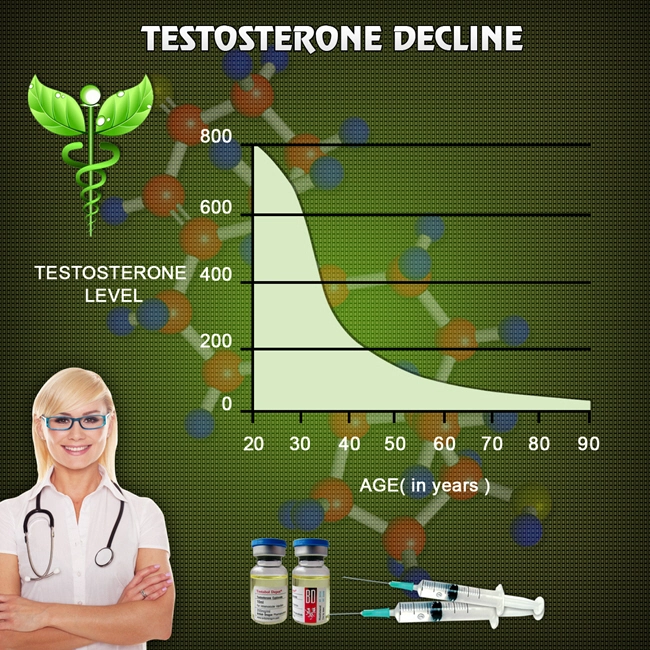
Video Link: https://vimeo.com/361191196
Video Download: Click Here To Download Video
Video Stream: Click Here To Stream Video
For decades the medical community accepted the fact that testosterone replacement therapy (TRT) should never be prescribed for aging men due to the increased risk of prostate cancer.
This was especially true for men that were diagnosed with the dreaded disease. It was considered by many urologists that treating men suffering from prostate cancer with testosterone would be “like throwing gasoline on a raging bonfire.”
 However, this long-held view has been challenged. Ever hear of robot-assisted radical prostatectomy (RARP)? This is when doctors use a robot to perform surgery on the prostate, with more precision, control, and better visuals. A recent study has shown that men who follow a testosterone replacement therapy program (TRT) will have better outcomes from this surgery than if they were not on TRT.
However, this long-held view has been challenged. Ever hear of robot-assisted radical prostatectomy (RARP)? This is when doctors use a robot to perform surgery on the prostate, with more precision, control, and better visuals. A recent study has shown that men who follow a testosterone replacement therapy program (TRT) will have better outcomes from this surgery than if they were not on TRT.
In this study, 824 patients underwent RARP as the treatment protocol for prostate cancer. Some of the patients were found to have low testosterone prior to the surgery and were given testosterone injections in order to increase their levels as well as improve their sexual function after surgery. This group included 18% of the patients. Therefore, the findings were totally unexpected since they were not directly looking at the effects of TRT on RARP recovery.
And these findings were that the group who had taken testosterone injections had fewer instances of recurrence, meaning there were fewer biochemical signs of prostate cancer coming back. In addition, in the patients who did experience recurrence, the ones on TRT experienced a longer timespan without recurrence and a delay in the progression of the cancer.
These results are contrary to the long-held belief that men suffering from prostate cancer shouldn't ever, ever, ever go near testosterone replacement therapy!
Doctors used to think that testosterone therapy would promote the development of prostate cancer and the growth of tumors. As a result, typical treatment was designed to lower a man's testosterone levels, in order to inhibit cancer growth. They did this using a technique called androgen deprivation therapy (ADT), which could also be called "chemical castration." That sounds horrific!
"It's very hard to overturn guidelines and black box warnings on drugs, but I think this research is important for doing just that. We need to expand the growing body of evidence that testosterone replacement is safe and possibly beneficial for these patients," Maxwell Towe stated a clinical research fellow at the University of California.
Francesco Montorsi, MD, director of the urology unit at San Raffaele Hospital in Milan, Italy, was asked to comment on the study by Medscape Medical News, even though he did not participate directly in the research. Montorsi thinks that these remarkable findings, "emphasize the importance of checking testosterone levels as a part of the management of patients with sexual disorders following radical prostatectomy.”
"Obviously, selection of the right patients is vital, but if confirmed, this may have immediate benefits on quality of life," Montorsi also concluded . "The possibility of reducing mortality would be an unexpected bonus."
. "The possibility of reducing mortality would be an unexpected bonus."
The intriguing research was presented at the European Association of Urology Congress in 2019. The senior author of the study, Thomas Ahlering, took the time to explain the justification for the research.
"The whole thing actually started because, of the men that I was seeing, enough of them were not having recovery of sexual function. I did the same operation — why were these guys not doing as well? That's what prompted me to start measuring total and free testosterone back in 2009 on everybody," Dr. Ahlering stated.
Dr. Ahlering made it a point that free testosterone is the active form of testosterone in the body, meaning that it can interact with cells and tissues. There are other forms of testosterone that is bound to other molecules in the blood stream and cannot interact with cells. Dr. Ahlering and his fellow researchers discovered that low free testosterone levels is actually a very high risk for aggressive prostate cancer.
"We saw this really clear situation where, as the testosterone levels continued to drop, the grade — grade group in particular — started to go up, so the lower your testosterone, the more aggressive your cancer was," Dr. Ahlering added.
The beginning of the “testosterone causes prostate cancer” myth
The whole "testosterone causes prostate cancer" myth actually started way back in 1941 (yes, it's definitely time for updated research and data on this topic!). Dr. Charles B. Huggins was the man who started using hormone therapy to treat prostate cancer and was a Nobel Prize winner for his work. Unfortunately, it seems like his findings were not quite as conclusive as we once thought.
Today, the scientists who took part in the said study, and many other medical professionals, have come to different conclusions. They seem to think that men who have low testosterone levels already in conjunction with low-risk disease, and at the same time of the surgery, may actually benefit from testosterone replacement therapy. TRT can increase their lean muscle mass, reduce triglycerides, and improve sexual performance and function -- all issues that arise when a man has low-T.
Study Methodology
As stated previously, the study group was composed of a total of 824 subjects, all of who had RARP for treating of prostate cancer.
Before the surgery, the levels of sex hormone-binding globulin (SHBG) were measured via blood tests, and free testosterone levels were calculated from this data.
Almost 18% of the men, a total of 152 patients, had low free testosterone levels before surgery. It was recommended that these men get started with testosterone injections in order to improve sexual functioning post-surgery. The 152 men continued with TRT throughout their follow-up testing timeline or until a biochemical recurrence was detected.
What surprised Dr. Ahlering was that after the follow-up which lasted about 3.1 years, there was a 53% relative reduction in risk of a biochemical recurrence of the cancer in the group of men who had taken testosterone injections. Also, it was noted that any recurrence of the cancer was prolonged by 1.5 years when testosterone was involved.
Researchers also concluded that TRT, on its own, was a predictor for reduced risk of prostate cancer biochemical recurrence.
 Maxwell Towe also said that he hopes that a clinical trial could be conducted soon to really test this revolutionary idea that TRT can truly help men suffering from prostate cancer and help them recover from RARP or other prostate surgery.
Maxwell Towe also said that he hopes that a clinical trial could be conducted soon to really test this revolutionary idea that TRT can truly help men suffering from prostate cancer and help them recover from RARP or other prostate surgery.
Other urologists have even come forward and said that the results of this study were very similar to what they had found in their practice over the course of standard treatment for prostate cancer.
A doctor in France noted that when they had patients suffering from hypogonadism (another word for low testosterone), their diagnosis of prostate cancer was almost always of a higher grade, or more aggressive. This also would lead to an increased incidence of biochemical recurrence.
The effects of testosterone replacement therapy on the prostate: a clinical perspective.
Overestimating the significance of these findings is hard. The complicated relationship between testosterone and prostate cancer has still not been conclusively settled. As with so many medical issues, more research is needed.
settled. As with so many medical issues, more research is needed.
However, these results should cause a reevaluation of the "testosterone/prostate cancer" association.
Contact our clinic for a detailed discussion concerning what testosterone and growth hormone replacement therapy can do for you!
Reference
The effects of testosterone replacement therapy on the prostate: a clinical perspective.
Overturning Dogma -- Using Testosterone in Prostate Cancer
Contact Us Today For A Free Consultation
Dear Patient,
Once you have completing the above contact form, for security purposes and confirmation, please confirm your information by calling us.
Please call now: 1-800-380-5339.
Welcoming You To Our Clinic, Professor Tom Henderson.

- LabCorp Announces a Change to the Testosterone Reference Range [Last Updated On: April 16th, 2025] [Originally Added On: June 23rd, 2019]
- Important Facts About Testosterone Therapy Before Buying [Last Updated On: April 18th, 2025] [Originally Added On: July 13th, 2019]
- Soy: Does it Lower Testosterone? [Last Updated On: October 18th, 2024] [Originally Added On: August 30th, 2020]
- Testosterone Treatments May Successfully Reverse Type-2 Diabetes in Some Men [Last Updated On: April 15th, 2025] [Originally Added On: November 13th, 2020]
- Testosterone Replacement Therapy (TRT) May Prevent Heart Attacks and Diabetes [Last Updated On: April 21st, 2025] [Originally Added On: November 17th, 2020]
- Did You Know? Recent Studies Have Confirmed the Link Between Low Testosterone (“Low-T”) and Depression. [Last Updated On: April 17th, 2025] [Originally Added On: January 10th, 2021]
- New Study Finds Testosterone Does Not Increase Your Heart Attack Risk [Last Updated On: April 14th, 2025] [Originally Added On: January 11th, 2021]
- The Great Testosterone Debate [Last Updated On: April 20th, 2025] [Originally Added On: January 14th, 2021]
- Testosterone Replacement Therapy Lowers Heart Attack Risk [Last Updated On: April 19th, 2025] [Originally Added On: January 18th, 2021]
- New Study Says: The Benefits of Testosterone Replacement Therapy Outweigh The Risks [Last Updated On: April 22nd, 2025] [Originally Added On: January 19th, 2021]
- Male Menopause. Fact or Fiction ? [Last Updated On: April 23rd, 2025] [Originally Added On: January 20th, 2021]
- Testosterone: How Much Do You Really Know About This Masculine Hormone? [Last Updated On: October 6th, 2024] [Originally Added On: February 9th, 2021]
- Low-T: What are healthy levels of Testosterone and why is it difficult to measure? [Last Updated On: September 11th, 2025] [Originally Added On: April 3rd, 2021]
- Testosterone Therapy May Be Good for the Heart if You Have Low-T [Last Updated On: May 3rd, 2025] [Originally Added On: July 21st, 2021]
- In the Battle Against Aging, When do the Risks Outweigh the Rewards? [Last Updated On: April 4th, 2025] [Originally Added On: August 18th, 2021]
- New Study Concludes: Boosting Testosterone Levels Lowers Men's Death Risk [Last Updated On: May 11th, 2025] [Originally Added On: August 20th, 2021]
- Testosterone Replacement Therapy Slows Prostate Cancer! [Last Updated On: April 2nd, 2025] [Originally Added On: September 13th, 2021]
- Research proves that Testosterone Therapy Boosts Fertility! [Last Updated On: April 5th, 2025] [Originally Added On: September 26th, 2021]
- Free Testosterone and Sex Hormone-Binding Globulin [Last Updated On: April 6th, 2025] [Originally Added On: October 15th, 2021]
- Testosterone Does Not Cause Heart Attacks [Last Updated On: April 7th, 2025] [Originally Added On: October 15th, 2021]
- Testosterone and Women [Last Updated On: April 8th, 2025] [Originally Added On: October 15th, 2021]
- Testosterone and Metabolic Syndrome [Last Updated On: April 3rd, 2025] [Originally Added On: October 15th, 2021]
- Testosterone and Disease Prevention [Last Updated On: March 31st, 2025] [Originally Added On: October 15th, 2021]
- Judge Vacates $140 Million Verdict in Testosterone Lawsuit [Last Updated On: April 1st, 2025] [Originally Added On: October 15th, 2021]
- Testosterone and Estrogen [Last Updated On: April 9th, 2025] [Originally Added On: October 16th, 2021]
- Testosterone and Aging [Last Updated On: April 10th, 2025] [Originally Added On: October 16th, 2021]
- Testosterone Replacement Therapy (TRT) Benefits [Last Updated On: April 11th, 2025] [Originally Added On: October 16th, 2021]
- Testosterone and Male Menopause [Last Updated On: March 30th, 2025] [Originally Added On: October 16th, 2021]
- Testosterone Battles Obesity [Last Updated On: March 29th, 2025] [Originally Added On: October 16th, 2021]
- Why You Need Testosterone Replacement Therapy [Last Updated On: May 14th, 2025] [Originally Added On: October 16th, 2021]
- Testosterone FAQ's [Last Updated On: May 13th, 2025] [Originally Added On: October 25th, 2021]
- How Testosterone Impacts Sexual Preferences In Men and Women [Last Updated On: March 28th, 2025] [Originally Added On: October 30th, 2021]
- Growth Hormone and The Thyroid Gland [Last Updated On: April 24th, 2025] [Originally Added On: November 19th, 2021]
- How Does Masturbation Affect Testosterone Levels? Exploring the Science [Last Updated On: May 24th, 2025] [Originally Added On: March 27th, 2022]
- Testosterone Therapy Increasingly Used to Help Men Take Control of Aging [Last Updated On: May 25th, 2025] [Originally Added On: May 30th, 2022]
- The many benefits of Testosterone Replacement Therapy (TRT) [Last Updated On: November 1st, 2025] [Originally Added On: June 13th, 2022]
- Tlando Testosterone - A Brand New Way to Treat Low-T Safely with a Testosterone Pill [Last Updated On: May 28th, 2025] [Originally Added On: July 12th, 2022]
- Safe Tlando Testosterone Changes Landscape of Low-T Therapy [Last Updated On: May 30th, 2025] [Originally Added On: August 15th, 2022]
- Systems to Monitor Testosterone Replacement Therapy (TRT) [Last Updated On: October 12th, 2025] [Originally Added On: September 21st, 2022]
- Testosterone May Help You Keep Your Job (Or Find Another) [Last Updated On: June 12th, 2025] [Originally Added On: October 4th, 2022]
- Toxic Chemicals are Killing your testosterone…And your Manhood! [Last Updated On: October 28th, 2024] [Originally Added On: October 10th, 2022]
- A new study reveals that Testosterone improves body composition in men with low testosterone! [Last Updated On: October 22nd, 2025] [Originally Added On: October 17th, 2022]
- A former Mr. Olympia speaks about testosterone [Last Updated On: October 10th, 2025] [Originally Added On: November 8th, 2022]
- Testosterone Blockers Thwart Melanoma [Last Updated On: June 9th, 2025] [Originally Added On: December 11th, 2022]








